10 Underrated Sci-Fi TV Shows From the 90s That Are Worth Rewatching
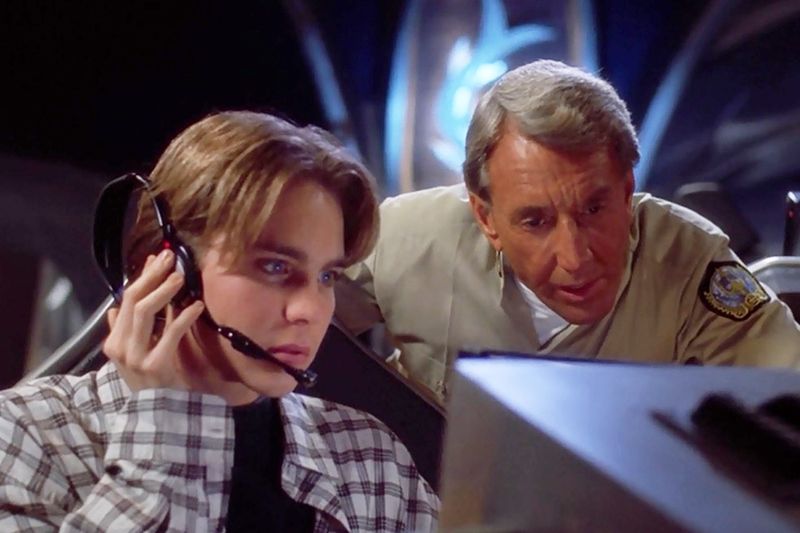
Nostalgia hits different when the future looks like clunky terminals, chunky spaceships, and conspiracies scribbled on corkboards. The 1990s produced a treasure trove of sci-fi that never quite got its mainstream due, yet still hums with ideas and heart.
If you’re craving ambitious world-building, eccentric tone swings, or genre-bending oddities, these shows deliver. Queue them up, and rediscover a decade that imagined tomorrow with duct tape, sincerity, and big, weird dreams.
1. Space: Above and Beyond (1995–1996)
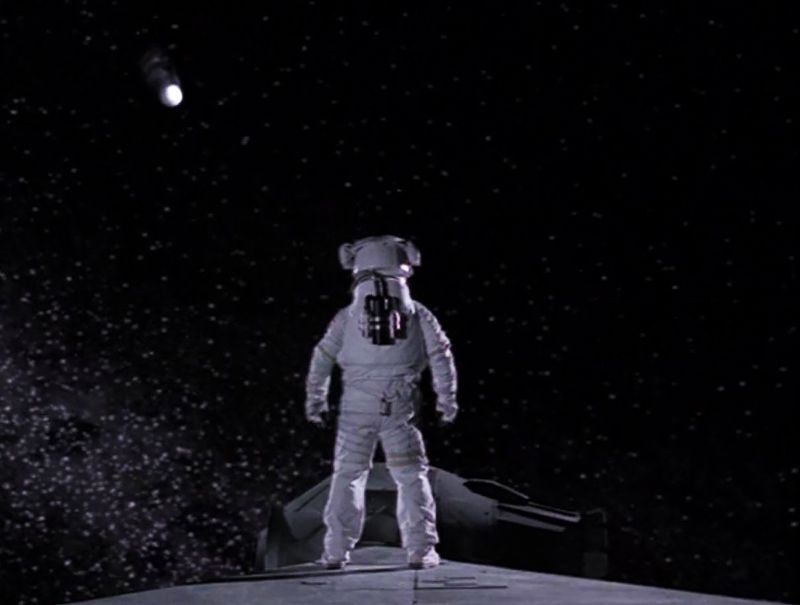
War stories rarely felt this intimate. A tight-knit squadron of Marine pilots is thrust into a brutal interstellar conflict, where dogfights and foxholes collide with questions of loyalty, grief, and identity.
The series’ universe feels lived-in: corporate politics, artificially created soldiers battling for dignity, and an enemy that’s more than a faceless swarm. Every mission leaves scuffs on the soul, not just scorch marks on hulls.
What makes it linger is the humanity beneath the hardware. Characters lean on gallows humor, imperfect leadership, and quiet acts of courage to survive. The show’s anti-glossy aesthetic grounds its most operatic beats, making triumphs earned and losses stinging. You can see the creators aiming for legacy.
Cancellation struck early, sharpening the show’s poignancy. Arcs bend toward unfinished futures, yet episodes land with emotional clarity. It’s the kind of heartbreak worth revisiting.
2. Earth 2 (1994–1995)

Frontier survival gets a planetary upgrade. A caravan of colonists braves a distant world to build a healthier future, dodging hostile terrain, mysterious indigenous life, and corporate meddling.
The series balances adventure with environmental conscience, asking what it means to settle rather than conquer. Its sense of wonder comes through in quiet moments—campfires under alien skies, improvised medicine, and the crunch of sand under exosuit boots.
A rare 90s female commander anchors the drama with steady resolve and vulnerability. Parents, children, and misfits grapple with leadership, ethics, and the burden of hope. The show smartly treats the planet as a character—alive, reactive, sometimes merciful, often humbling. Stakes feel personal and communal.
Though short-lived, it rewards patient rewatching. Themes of sustainability and community resonate even louder today. It’s a gentle epic, rough-edged but earnest, with pioneering heart.
3. Dark Skies (1996–1997)
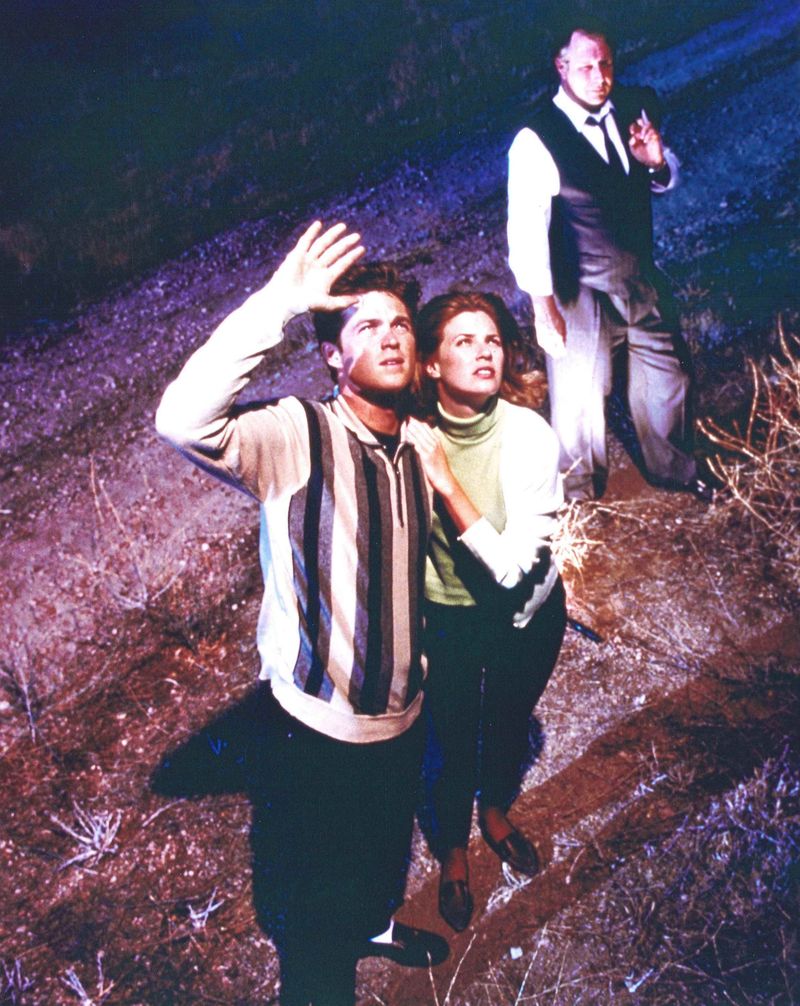
History class meets the paranoia file. Across the 1960s, a clandestine alien presence threads through iconic events, while a shadowy agency tightens its grip on truth.
The show’s hook is irresistible: conspiracy as connective tissue for the Cold War, pop culture, and political upheaval. Even when it leans pulpy, the mood stays deliciously uneasy—cigarette smoke, reel-to-reel tapes, and secrets stitched into flag seams.
Characters tumble through betrayals and alliances with tragic momentum. Love stories fray under surveillance, friendships crack under mission creep, and idealism gets traded for survival. The aliens are frightening, but the machinery of cover-up is colder. It’s the kind of narrative where a handshake might doom a decade.
As a forgotten cousin to The X-Files, it’s moodier and more alt-history forward. Rewatching reveals sly timelines, period detail, and echoes of modern misinformation.
4. VR.5 (1995)
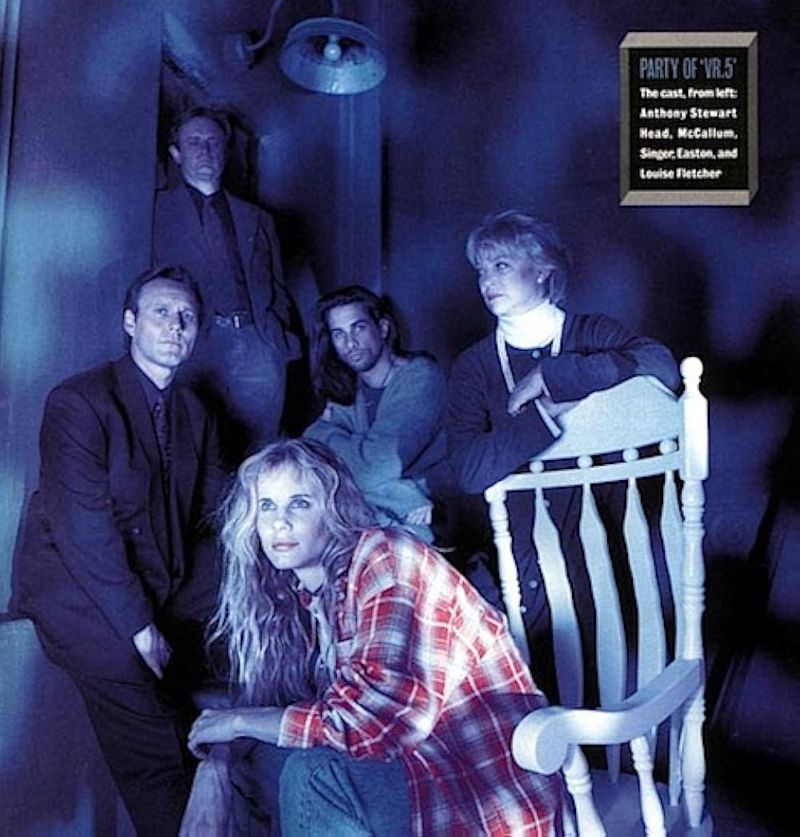
Cyberspace gets personal and profoundly weird. A phone line, a terminal, and a fractured mind open doors into other people’s psyches, where memories blur and secrets crystallize. The show’s visual style leans into dream logic—glitchy corridors, saturated neons, and mirrored faces that won’t quite align. Beneath the style, though, is grief, curiosity, and the thrill-terrible fear of knowing someone too well.
The heroine isn’t a hacker stereotype; she’s a vulnerable explorer, detective, and accidental therapist. Episodes unpack trauma with cyberpunk flair, letting surreal encounters illuminate real-world stakes. The 90s tech sheen is charmingly retro, but the emotional circuitry still hums. It is genre television that treats empathy like a superpower.
Though uneven, it’s unforgettable when it clicks. Rewatches reward attention to symbolic details and recurring motifs. Think lucid dreams wrapped in modem noise and cathode glow.
5. Now and Again (1999–2000)

Domestic bliss collides with spycraft in a bittersweet key. A middle-aged everyman’s brain wakes inside a state-of-the-art body, turning grocery lists into covert ops and PTA nights into clandestine longing. The tone dances between caper and melancholy, as heroics are shadowed by the ache of a family kept at arm’s length. It’s superhuman power with painfully human consequences.
The show delights in playful set pieces and sly satire, then pivots to tenderness. Government handlers, morally flexible scientists, and suburban rituals weave a tight narrative net. Performances sell the impossible—laugh-out-loud awkwardness beside lump-in-throat yearning. It’s a dramedy that respects both halves of its DNA.
As the millennium loomed, it asked what a perfect body is worth without your imperfect life. Rewatching highlights the craft: breezy pacing, sharp dialogue, and a soft, persistent heartbreak.
6. Lexx (1997–2002)
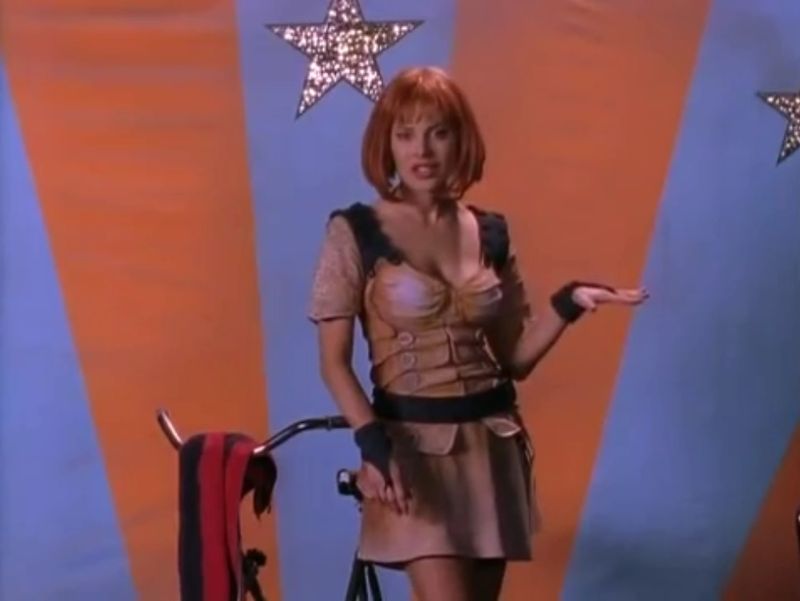
Space opera for the delightfully unhinged. A crew of lovable degenerates commandeers a giant living spaceship with appetites of its own, hurtling through a universe that’s equal parts grotesque and gleeful. The humor veers from bawdy to bleak, stitched together with midnight-movie charm and fearless imagination. Budget constraints become aesthetics: rubbery grandeur, candy-colored depravity, and audacious practical effects.
Episodes pinball between satire, horror, and tragic romance. The misfits form a found family built on dubious choices and surprising loyalty. It’s messy in a way that feels alive, daring tonal shifts most shows wouldn’t touch. You’re never quite sure whether to laugh, shudder, or applaud.
Late-night cable energy crackles through every frame. If you crave weirdness with heart, this is your feast. Rewatching is like opening a cult VHS that still smells like ozone and popcorn.
7. Sliders (1995–2000)
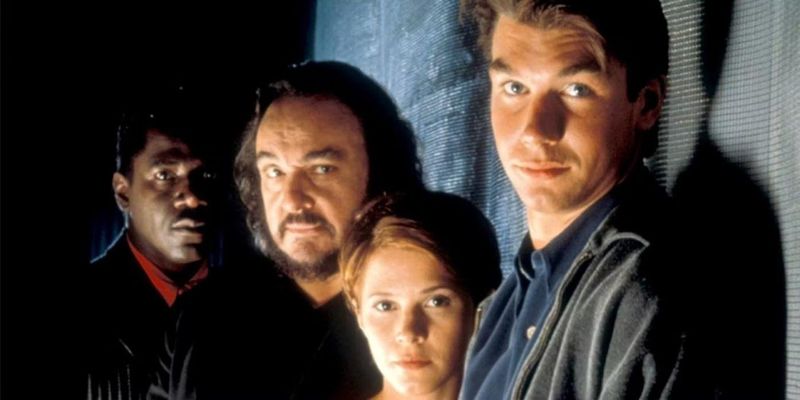
What if one wrong turn drops you into a world where everything’s almost the same—until it isn’t? A small crew rides a wormhole between alternate Earths, collecting culture shocks like passport stamps. The show’s sweet spot is the Twilight Zone-style thought experiment: what changes when history tilts five degrees? Inventive premises keep the adventure buoyant even as stakes escalate.
Character chemistry does the heavy lifting. Friends bicker, improvise, and cling to decency while dodging tyrannies, plagues, and weird sports leagues. The tone moves from mainstream romp to scrappy survival, and that evolution is part of the charm. It’s fast-food fun with occasional gourmet bites.
Though it slipped from the zeitgeist, it’s perfect comfort sci-fi. Rewatch for clever world rules, quotable banter, and the thrill of stepping sideways into possibility. Slide again—you know you want to.
8. SeaQuest DSV (1993–1996)
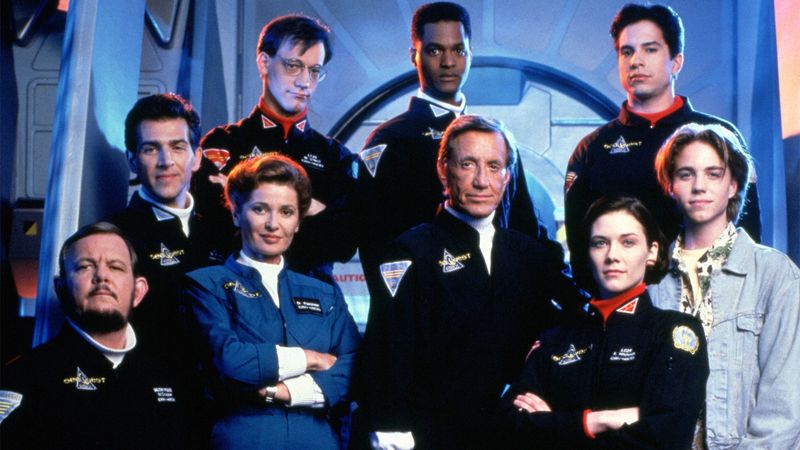
The final frontier goes under the waves. A futuristic submarine patrols a politically fraught ocean, navigating diplomacy, corporate greed, and deep-sea mysteries. The series mixes science outreach vibes with swashbuckling, showcasing marine tech, environmental ethics, and the sheer wonder of abyssal life. Pressure, literally and figuratively, defines its missions.
Ensemble dynamics keep the bridge humming. Season shifts swing from educational to pulpy, but curiosity stays constant—ancient ruins, biotech experiments, and creatures that defy taxonomy. The 90s aura—brassy themes, optimistic monologues, gleaming consoles—adds nostalgic lift. It’s a show that believes in solving problems without always firing torpedoes.
Rewatch value lies in the premise’s breadth. One week is geopolitics; the next, speculative science. If you miss optimistic futurism with a salty breeze, dive back in and enjoy the sonar ping of adventure.
9. The Sentinel (1996–1999)
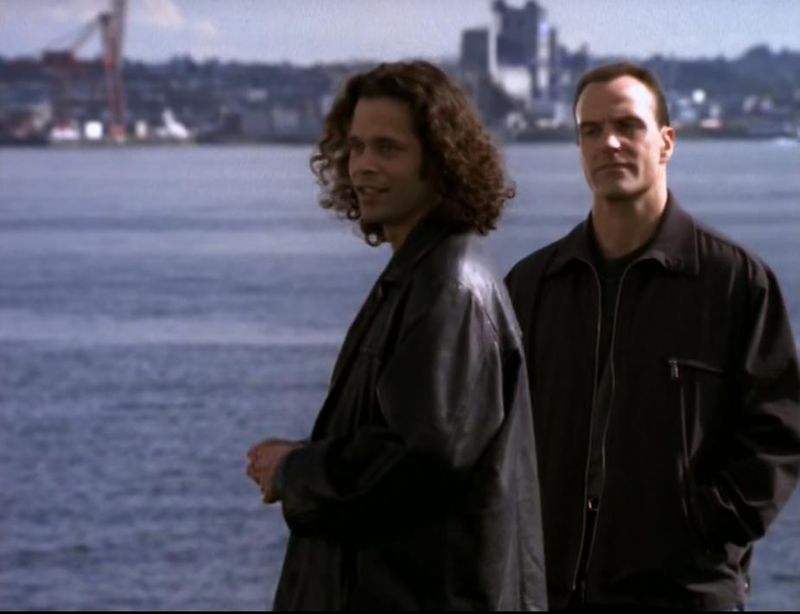
Crime-solving gets a primal upgrade. After a harrowing jungle experience, a detective develops hyper-senses—sight, sound, scent, touch, taste cranked to eleven. That gift is a curse without grounding, and his anthropology grad-student partner becomes the anchor. Together they tackle cases that hinge on observation, instinct, and keeping the dial from blowing out.
The procedural framework hides a pulp heart. Episodes toy with sensory overload, meditation techniques, and human connection as calibration. It’s as much about friendship as forensics, a classic buddy dynamic wrapped in genre trappings. Low-key Vancouver moodiness gives it noir spice.
Cult fans remember the sensory “zone-out” and the gentle humor. Rewatching reveals a warm, dependable rhythm and creative set pieces. It’s not flashy sci-fi, but it’s satisfyingly tactile—like switching your TV to a sharper channel and hearing the city breathe.
10. The Pretender (1996–2000)

Identity becomes a weekly heist. A brilliant escapee from a secretive research center slips into new professions—doctor, pilot, lawyer—like second skins, helping underdogs and outwitting persistent hunters. The concept is wish-fulfillment laced with melancholy: the freedom to become anyone, haunted by the theft of a real childhood. Villainy arrives in sharp suits and careful smiles.
Each episode builds a puzzle box of skills, ethics, and cat-and-mouse tension. Flashbacks drip-feed the mythos, while the hero’s empathy makes the con feel noble. It’s character-driven sci-fi without laser battles, more psychology than pyrotechnics. The stakes are personal, and that intimacy endures.
On rewatch, the craftsmanship shines—tight plots, memorable antagonists, and a lead performance that sells genius as lived-in curiosity. It’s the rare show that feels like comfort food and covert ops at once.

Comments
Loading…